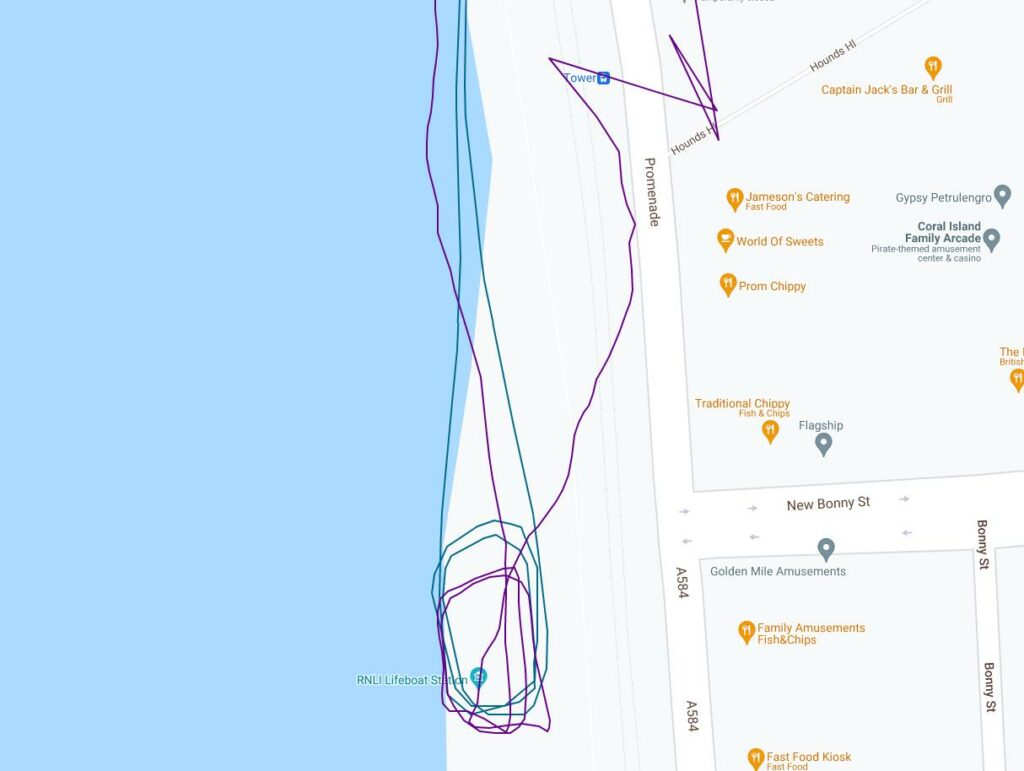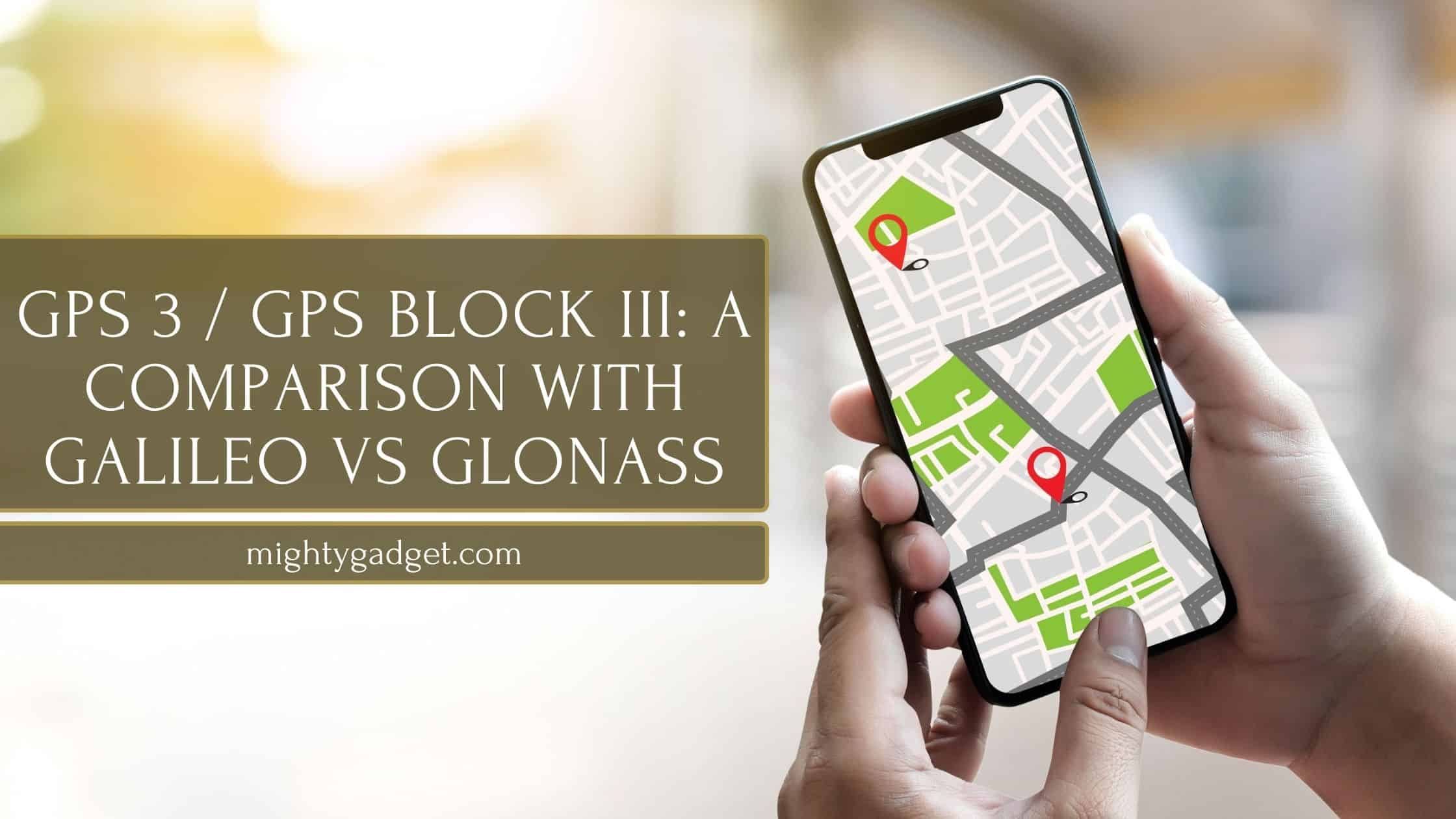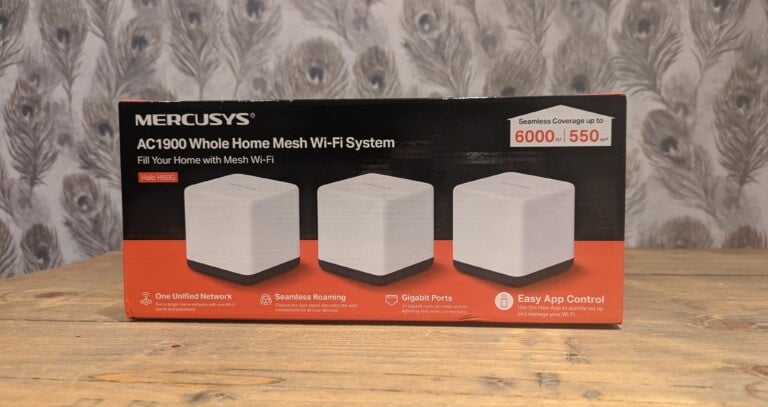Any links to online stores should be assumed to be affiliates. The company or PR agency provides all or most review samples. They have no control over my content, and I provide my honest opinion.
Global Navigation Satellite System (GNSS), or GPS as it is more frequently called, has become an essential part of our lives. I have a poor ability to visualise routes, and I find that I am often reliant on Google Maps for even simple journeys.
Then, of course, for fitness, I use GPS extensively to track my running, cycling and walking.
I recently even used a GPS tracker to track my luggage when I went on holiday.

The accuracy and reliability of GPS is therefore extremely important. There is nothing more annoying to me than my Garmin Epix 2 messing up my GPS tracking when posting it to Strava, or even mid-workout for pacing.
The US have been improving GPS with the launch of the new GPS Block III which will both help keep the system operational and also improve it in many ways.
GPS 3: The Next Generation of GPS
GPS 3 is the latest generation of the Global Positioning System (GPS), designed to provide significant improvements over previous versions, such as GPS 2. Some of the key enhancements include increased accuracy, better anti-jamming capabilities, and extended lifespan[1].
Improvements Over GPS 2
GPS 3 offers 3-times greater accuracy and up to 8-times improved anti-jamming capabilities compared to GPS 2. While GPS 2 systems have a 5-10 meter accuracy, GPS 3 will have a 1-3 meter accuracy, making it more precise than ever before. This increased accuracy will result in more detailed and exact routes and locations for GIS-based web mapping applications like Google Maps[1].
GPS III vs GALILEO and GLONASS
To provide a comprehensive comparison between GPS 3, GALILEO, and GLONASS, the following table includes information on Origin, Operational Satellites, Frequency Band, Real-world accuracy, Encryption, Global Coverage, Interoperability, Capacity, Lifespan, Launch Date, and Final Launch Date.
| Feature | GPS 3 | GALILEO | GLONASS |
|---|---|---|---|
| Origin | United States | European Union | Russia |
| Operational Satellites | 10 (planned) 31 Operational with older GPS | 26 (planned) | 24 |
| Frequency Band | L1, L2, L5 | E1, E5, E6 | L1, L2 |
| Real-world accuracy | 1-3 meters | 1-3 meters | 5-10 meters |
| Encryption | Yes | Yes | Yes |
| Global Coverage | Global | Global | Global |
| Interoperability | Yes | Yes | Yes |
| Capacity | High | High | High |
| Lifespan | 15 years | 12 years | 7-12 years |
| Launch Date | Dec 2018 | Oct 2011 | Oct 1982 |
| Final Launch Date | Ongoing | Ongoing | Ongoing |
Origin
GPS 3 is developed by the United States, GALILEO is a project of the European Union, and GLONASS is owned by Russia[6].
Operational Satellites
GPS 3 has 10 planned satellites, GALILEO has 26 planned satellites, and GLONASS has 24 satellites[5][6][11].
Frequency Band
GPS 3 operates on L1, L2, and L5 frequency bands, GALILEO on E1, E5, and E6, and GLONASS on L1 and L2[3][10].
Real-world accuracy
GPS 3 and GALILEO offer 1-3 meters of accuracy, while GLONASS provides 5-10 meters of accuracy[1][6].
Encryption
All three systems have encryption capabilities[6].
Global Coverage
All three systems provide global coverage[6].
Interoperability
GPS 3, GALILEO, and GLONASS are designed to be interoperable, meaning they can work together to provide more accurate and reliable positioning data[2].
Capacity
All three systems have high capacity[13].
Lifespan
GPS 3 satellites have a lifespan of 15 years, GALILEO satellites have a lifespan of 12 years, and GLONASS satellites have a lifespan of 7-12 years[9].
Launch Date
GPS 3’s first satellite was launched in December 2018, GALILEO’s first satellite was launched in October 2011, and GLONASS’s first satellite was launched in October 1982[5][11].
Final Launch Date
All three systems are still ongoing, with more satellites planned for launch in the future[5][11].
Pros and Cons
GPS 3 Pros:
- Improved accuracy (1-3 meters) compared to GPS 2 and GLONASS[1][6]
- Better anti-jamming capabilities than GPS 2[1]
- Longer lifespan (15 years) compared to GALILEO and GLONASS satellites[9]
GPS 3 Cons:
- Still in the process of deployment, with only a few satellites currently in orbit[5]
GALILEO Pros:
- High accuracy (1-3 meters) [6]
- Better performance in urban environments compared to GPS and GLONASS[6]
GALILEO Cons:
- Shorter lifespan (12 years) compared to GPS 3 satellites[9]
GLONASS Pros:
- Better performance in mountainous regions compared to GPS and GALILEO[6]
GLONASS Cons:
- Lower accuracy (5-10 meters) compared to GPS 3 and GALILEO[6]
- Shorter lifespan (7-12 years) compared to GPS 3 satellites[9]
In conclusion, GPS 3 is a significant step forward in satellite navigation technology, offering improved accuracy, anti-jamming capabilities, and a longer lifespan compared to previous generations and other global navigation satellite systems. While GALILEO and GLONASS have their own advantages, GPS 3 is expected to provide a more accurate and reliable positioning system when fully deployed.
Citations:
[1] https://medium.com/predict/gps-3-the-next-generation-of-gps-9012a8a361a3
[2] https://the5krunner.com/2019/09/17/what-is-gps-3-iii/
[3] https://blog.bliley.com/the-differences-between-the-5-gnss-satellite-network-constellations
[4] https://www.gpscity.com/compare/3plus
[5] https://en.wikipedia.org/wiki/GPS_Block_III
[6] https://expertworldtravel.com/gps-vs-glonass-vs-galileo/
[7] https://transitiva.com/knowledgebase/glonass-gps-differences/
[8] https://www.gps.gov/systems/gps/space/
[9] https://www.digitaltrends.com/cool-tech/what-is-gps-3/
[10] https://starlinkhow.com/galileo-vs-gps/
[11] https://www.symmetryelectronics.com/blog/gps-vs-glonass-which-is-best-for-tracking-applications/
[12] https://www.dcrainmaker.com/product-comparison-calculator
[13] https://www.lockheedmartin.com/en-us/products/gps.html
[14] https://media.defense.gov/2017/Nov/21/2001847056/-1/-1/0/CP_0023_BEIDLEMAN_GPS_VERSUS_GALILEO.PDF
[15] https://theconstructor.org/question/what-is-the-difference-between-gps-and-glonass/
[16] https://www.gpscentral.ca/garmin-handheld-gps-comparison-chart/
[17] https://www.gpsworld.com/new-type-on-the-block-generating-high-precision-orbits-for-gps-iii-satellites/
[18] https://www.gpsrchive.com/Shared/Satellites/GPS%20vs%20GLONASS%20vs%20Galileo.html
[19] https://www.rfwireless-world.com/Terminology/GPS-vs-GLONASS.html
[20] https://www.gpsworld.com/directions-2022-positioned-for-the-future/
[21] https://en.wikipedia.org/wiki/Galileo_(satellite_navigation)
[22] https://gulfnews.com/special-reports/gps-gets-an-upgrade-how-it-affects-you-what-happens-next-1.1677504010941
[23] https://ndupress.ndu.edu/Media/News/News-Article-View/Article/2999161/beidou-chinas-gps-challenger-takes-its-place-on-the-world-stage/
[24] https://www.geospatialworld.net/blogs/what-is-gps-iii-and-what-are-us-gps-iii-capabilities/
[25] https://web.stanford.edu/group/scpnt/gpslab/pubs/papers/Wang_ION_ITM_2023_GNSS_Faults.pdf
I am James, a UK-based tech enthusiast and the Editor and Owner of Mighty Gadget, which I’ve proudly run since 2007. Passionate about all things technology, my expertise spans from computers and networking to mobile, wearables, and smart home devices.
As a fitness fanatic who loves running and cycling, I also have a keen interest in fitness-related technology, and I take every opportunity to cover this niche on my blog. My diverse interests allow me to bring a unique perspective to tech blogging, merging lifestyle, fitness, and the latest tech trends.
In my academic pursuits, I earned a BSc in Information Systems Design from UCLAN, before advancing my learning with a Master’s Degree in Computing. This advanced study also included Cisco CCNA accreditation, further demonstrating my commitment to understanding and staying ahead of the technology curve.
I’m proud to share that Vuelio has consistently ranked Mighty Gadget as one of the top technology blogs in the UK. With my dedication to technology and drive to share my insights, I aim to continue providing my readers with engaging and informative content.







